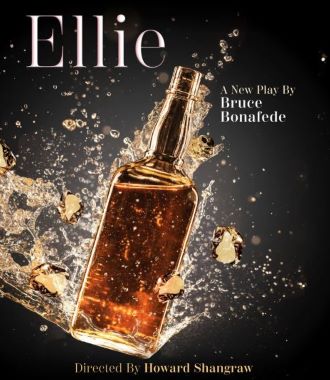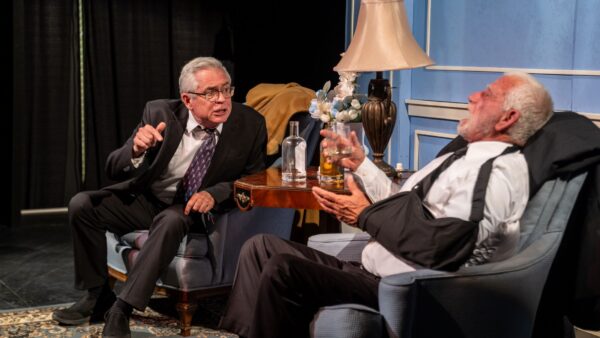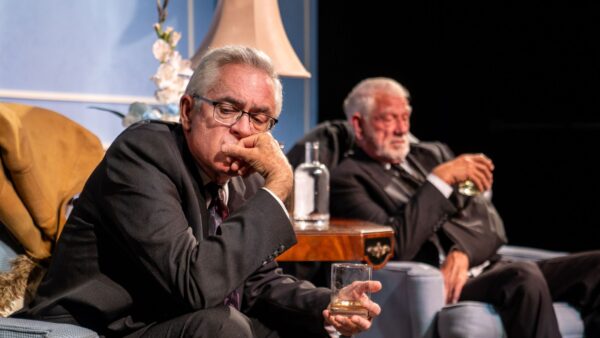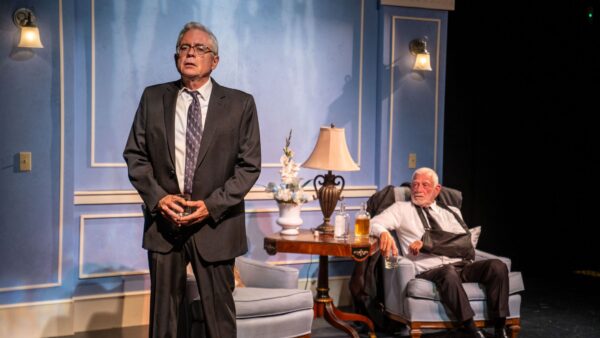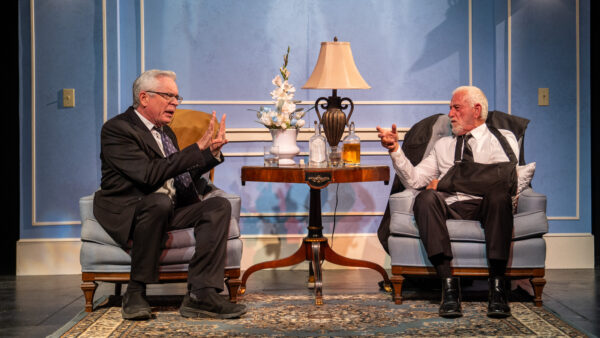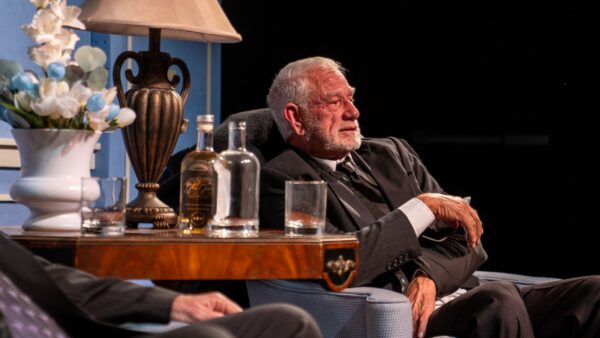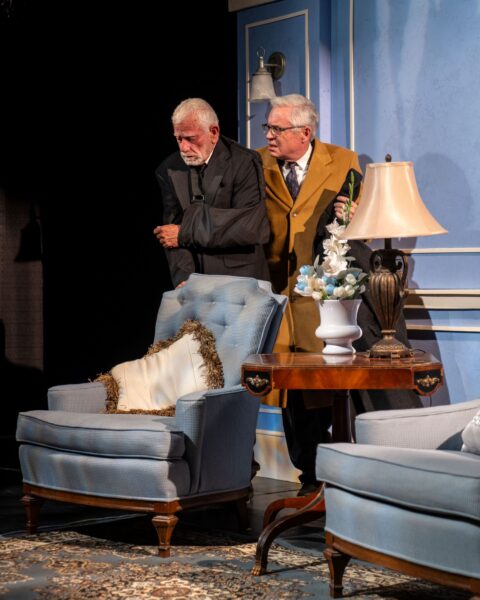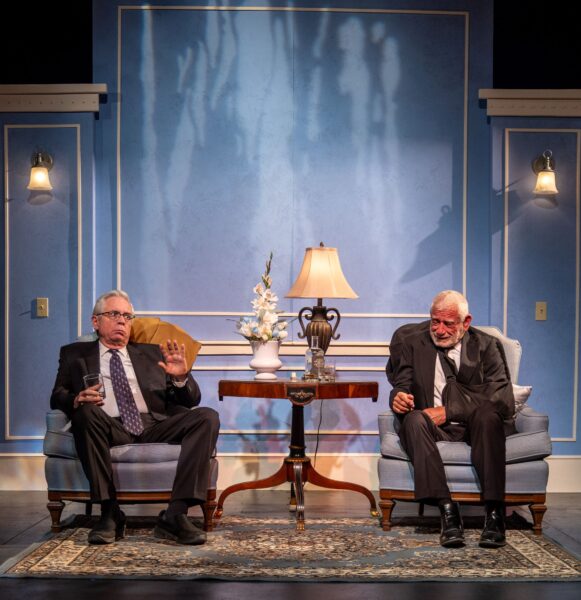NEW PLAY ELLIE SHOWS ITS UNDERBELLY
Desert Ensemble Theater (DET) is one of the boldest and few Coachella Valley companies committed to creating new work and producing envelope-pushing plays. At the end of DET’s current season — it’s thirteenth — DET executive director Shawn Abramowitz and artistic director Jerome Elliott Moskowitz will have commendably produced fourteen world premieres. With this commitment comes the admirable willingness to take risks. Currently, DET is presenting Bruce Bonafede’s Ellie, running through March 17. The new two-act drama has compelling characters and story, but it needs refinement and further growth.
The intimate two-hander features two of the area’s most respected actors, Richard Marlow, for whom the play was written, and Abe Daniels. They play elderly brothers Richard (Marlow) and Warren (Daniels), who are both grappling with the recent loss of Warren’s wife, Ellie. Their mourning triggers a confrontation that exposes the depths of their lifelong love/hate dynamic, ultimately culminating in startling decisions that alter the course of their lives indefinitely. The masterful actors breathe life into their characters. Daniels impresses with a sterling depiction of Warren’s struggle against his injuries. Marlow demonstrates boldness and decisiveness in final events pivotal to the the play’s outcome.
At the top, the poignant but obvious “He Ain’t Heavy” plays before we hear a car pull up and park, followed by the brothers struggling to get into a powder-blue colonial room with two French Provincial chairs and accent table (bold, minimal set by Thomas L. Valach). Richard is carrying Warren who is writhing in severe pain from injuries sustained in the car accident that killed his wife Ellie, from whose funeral they are returning. We soon learn, too, that throughout their lives Warren has also done his share of “carrying” Richard. At present, Richard is living in Warren’s guest house as he struggles financially to pay down the massive debt he was left with following a divorce.
Fueled by years of unresolved animosity, the brothers are at each other’s throats from the start. The duo enters the play already at the height of their emotions and the conflict escalates quickly. A more dynamic evolution of the narrative would make the show more engaging. Howard Shangraw, nonetheless, directs the play’s ending scenes with aplomb and Richard’s final bold, decisive actions do provide an outcome with some satisfaction.
Additionally, with Warren’s physical injuries keeping him in his chair throughout, the play feels stagnant. The brothers don’t seem to really be listening to each other as their shared history and animosity intertwines with their connections to the unseen Ellie, who I consider to be the play’s central character, and the only one worthy of deep empathy. As it is, there is zero empathy for the brothers, whose main activity is drinking Scotch.
The chance to witness new work come to life for the first time is always exciting and enriching. And for producers, it offers opportunities for learning, and insights to be gleaned. More authenticity and greater depth into the brothers relationship is required — along with the need to eliminate repetitiveness to streamline the text. Indeed, at the close of the first act, I sensed the play could have concluded, yet Act II unfolds significant events, particularly in the resolution of the brothers’ relationship. This implies opportunity for the play’s further evolution, and I would love to see the work continue to unfold.
photos by Nathan Cox
Ellie
Desert Ensemble Theatre
Camelot Theater in the Palm Springs Cultural Center
2300 East Baristo Road in Palm Springs
Fri at 7:30; Sat at 2 & 7:30; Sun at 2
end on March 17, 2024
for tickets ($37.50 plus online service fee), call 760.565.2476 or visit Desert Ensemble
